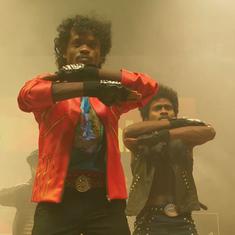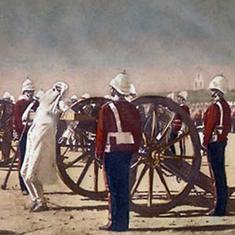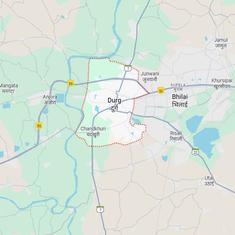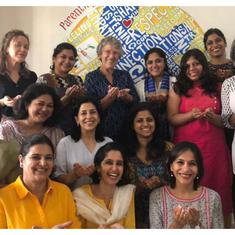The bitterest battles in the world today are being fought in the humanities and the imaginative social sciences. This isn’t entirely new. Emotions, ideas, beliefs, faith, and ideology have always been the most violent and sensitive points of contact – no less than land, wealth, food, technology, the material body, and other issues that might belong to the natural and the harder social sciences. Human health, freedom, and development have always required both, without any hierarchy between them. That is one of the key reasons we study both the humanities and the natural sciences – and the social formations that turn individuals into communities.
But what I want to say today is that the influence of the humanities has expanded far beyond its usual historical measure. And that influence makes me deeply worried and ashamed as a humanist.
Most university subjects, in their modern forms, can be traced back to the European Enlightenment. New ways of thinking, from Newtonian physics and Cartesian philosophy created a faith in science and reason. A rational appraisal of reality shaped many things that we take for granted today – from positivism in the social sciences to realism and interiority in literature. Older knowledge forms, ranging from philosophy to medicine to literature, got new centres of gravity during this period of radical modernity. It also brought a large-scale reorganisation of the institutions of knowledge and learning, particularly in their new secular formations. The modern Western research university was established through the intervention of Wilhelm von Humboldt in Germany, and graduate schools came into being, through the intervention of figures like Charles Eliot Norton at Harvard and Daniel Coit Gilman at Johns Hopkins.
Enlightenment in the colonies turned out to be a violent and contentious affair. “The night of the sword and the bullet was followed by the morning of the chalk and the blackboard,” wrote Ngũgĩ wa Thiong’o. Gayatri Chakravarty Spivak compared postcolonial culture to children of rape, reminding us that one can hate the act but not the progeny born of it. In the end, the modernities of Europe were richly modified to create indigenous modernities that were resistant, celebratory, and revisionist. Just two notable examples from India: the Bengal Renaissance in the 19th century with its social reforms, scientific culture, and literary movements; and later, the revolutionary Progressive Writers’ Movement in early 20th century Urdu and Hindi literature, which offered a unique, subcontinental expansion of anticolonial literary modernism. Our public universities, too, have derived from this modernity – or rather from the distorted version of it that was practised by the colonial administration and ideology, what many have identified as a clerk-training, examination-driven model.
The Enlightenment sought the Truth. It was the age of science and reason that quickly also became the age of technology. James Watt’s steaming kettle led to George Stevenson’s railway engine, and the Industrial Revolution led to the production of wealth on a scale and regularity not seen before. Capitalism started to go full steam ahead.
But the Truth of the Enlightenment, held up by its philosophy, science and technology, also turned out to be claustrophobic. Its colour was too White, its sex too Male, its orientation too Straight, its status too Bourgeois. When it came to Indian modernities, the White was replaced by the Savarna but everything else remained pretty much the same. It would not be too long before the technological advances of capitalist culture would lead to class exploitation and the devastation of the environment.
Throughout the 20th century, the sensitive and the rebellious questioned, critiqued, and wrestled with the Truth. Western reason’s claim of Truth was taken apart by feminists, anti-class and anti-caste thinkers, and theorists of race and colonialism. Truth was examined and challenged – but never abandoned altogether.
Suddenly, what we have now in the 21st century is both the spectre and the reality of the Post-Truth world. Truth doesn’t matter anymore. Only opinions, emotions, and feelings do, often fanned by the wilderness of mob justice. For a vast majority of people, reason and expertise have become dirty words. And one can see why. Globalisation and liberalisation worldwide, and the liberal and neoliberal cultures that enabled and benefited from them, excluded vast numbers of people, left them in their rural, working-class peripheries, in poverty and ignorance. Liberalism had cosied up too close to capitalism and had failed to be inclusive in spite of its grand vision. Those left out turned to unreason, prejudice, and bigotry. Charismatic dictators blazed their ways. 2016 led the way, with the election of Donald Trump and the British exit from the European Union. Both events were a backlash against the liberal world order, and its faith in reason, knowledge, and expertise.
This is our world now. While we remain preoccupied with rising waves of data, digitisation, and artificial intelligence – forces from the world of science and technology – popular action and even democratic choices are being increasingly driven by emotions, symbolism, and crucially, identity. Identity rooted in religion, race, caste – and in more complex ways, gender and sexuality. Everything that is in the domain of the humanities and the softer social sciences. The study of language and rhetoric, religious studies, the qualitative understanding of race, class, caste, and gender.
The greatest of today’s battles are ideological. “Ideology”, Mao had said, “is the greatest weapon.” The 20th century learned this lesson almost as immediately as they faced the deadlock of a mutually destructive military war. With nuclear power freezing martial stalemate, the battle turned to mind, ideology, and most potently, culture. Both the CIA and the KGB turned to the sponsorship of literary magazines and language institutes. The 21st-century superpower, China, has heavily invested in liberal arts colleges nationwide and Confucius Institutes worldwide to spread the soft power of Chinese language, culture, philosophy, and history. Thanks to paranoid cyber-vigilance, Western ideas now have very limited rights of entry into the country even as they aim for the American structure of liberal arts education. Educational policy in India today has been no different, with the greatest stamp of ideology being enacted through the humanities – history, philosophy, languages.
This is the terribly dubious importance of the humanities that disturbs me deeply as a humanist. To see the lingering shadow of the moment where the symbolism of a temple wins votes over the economics of real jobs – and to sigh in relief as that pitfall is narrowly avoided. The questions and debates that should belong to the genuine historian have been taken over in the streets, YouTube rants and WhatsApp gyaan. Language and symbolism – what is “freedom”, and who is an “outsider” – profoundly literary and philosophical ideas – shape political rhetoric more so than the language of economics or science: budgets, healthcare and welfare. Even the methods of the humanities, such as that of social relativism, are taken over by reactionary forces. The French philosopher Bruno Latour illustrated this while pointing out Right Wing activists who called global warming a “social construct” – much the way liberal humanists have described gender and sexuality.
A terrible war of mutual intolerance and hatred is raging between hashtag activists of #cancelculture and the attackers on the pluralist state, and it is happening all around the world. And the most urgent versions of this war are being fought in the spaces of the humanities and the soft social sciences. Even the construction of sciences in this battle – over missiles and spaceships in the ancient world, or the introduction of Ayurveda or Yoga in medical schools, are not scientific choices. They arise from narratives about national identity that are rooted in history, myth, and fiction – all in the domain of the humanities.
The humanities, I repeat, are more urgent than ever before. But it is an urgency and an importance that depresses me as a humanist. As a humanist, I wish more people would respond to the caveats of science – the doom of global warming, the statistics and economics of job creation. I long for people to turn away from the falsity of language and aesthetic symbolism, fake claims of history, dangerous philosophies of the self and groups.
This is where you, the students come in to make the difference. We have seen intriguing duplicities in the architecture of liberal arts education both on the part of government and industry. The quest for the kind of interdisciplinary liberal education that can solve corporate problems but which is not liberal in the ethical or the political sense of the term. Critical enough to create wealth but critical enough to question power. I trust that you will enter the world of the humanities in this space of liberal arts education – and leave it to enter the larger world – without these chains. And if you do, as humanists, you will assume tremendous power and even greater responsibility.
It’s all about taking hold of the narrative and changing it as your true conscience tells you. Narrative, as a device, belongs to literature and history. But just the way the term “creative” was taken over by the marketing and accounts people – “creative” campaigns, and dangerously, “creative book keeping” – the reality and practice of narrative are mired today in the narrow battle of identity and ideology. But as humanists, no one will know better than you the complexities and paradoxes of identity and ideology. You’ll do this for your final papers and your theses; the big challenge will be to work with them in life, the workplace, your community, even your school and housing community WhatsApp groups.
As long as there is humanity, the humanities will be central – for better or for worse. Artificial Intelligence, at least in the arc of the future we can see, will merely reflect the virtues and vices of humankind. The writers of AI algorithms are but humans, and they carry the biases and liberalisms of humans. A recent study has revealed the deep prejudices behind the images generated by a popular AI-powered tool that always shows a scientist to be a white male, a poor person to be black, and an Indian person to be always an old man with a beard. Amazon’s AI-generated hiring tool systematically rooted out female applicants and so had to be rooted out itself. In the visible future, AI will not replace the imagination of the humanities – neither its good, nor its bad, and nothing in between. The question of the subjective is fundamental to the humanities, and if there is subjectivity in AI, it is created by humans, through a humanistic imagination. Nor will ideological battles and alliances vanish as long as humanity lives, it’ll be the basis of the social and the political. Ideology must be understood through humanities and the softer social sciences.
Human judgement, even when it appears to be ethical or political, often has at its core the demands of the aesthetic, which is the unique purview of the humanistic. Raghu Rai’s chillingly iconic photograph, “Burial of an Unknown Child”, showing the childish face sunk deep within the debris of the Bhopal gas tragedy, became the sharp symbol of the world’s greatest industrial disaster and provoked a kind of shock that hard data and scientific information about the catastrophe could not do. Closer to us is a more ludicrous spectacle. That of a certain recently concluded celebrity wedding which provoked as much ridicule from the conscientious on account of its vulgar aesthetics as from the hard numbers of the astronomic expense in a poor country. The judgement made in the domain of the aesthetic is no less potent than that made in the domain of economics.
This is going to be your domain. Own it – and the tremendous power and responsibility that come with it.
A novelist and a critic, Saikat Majumdar is Professor of English and Creative Writing at Ashoka University.










